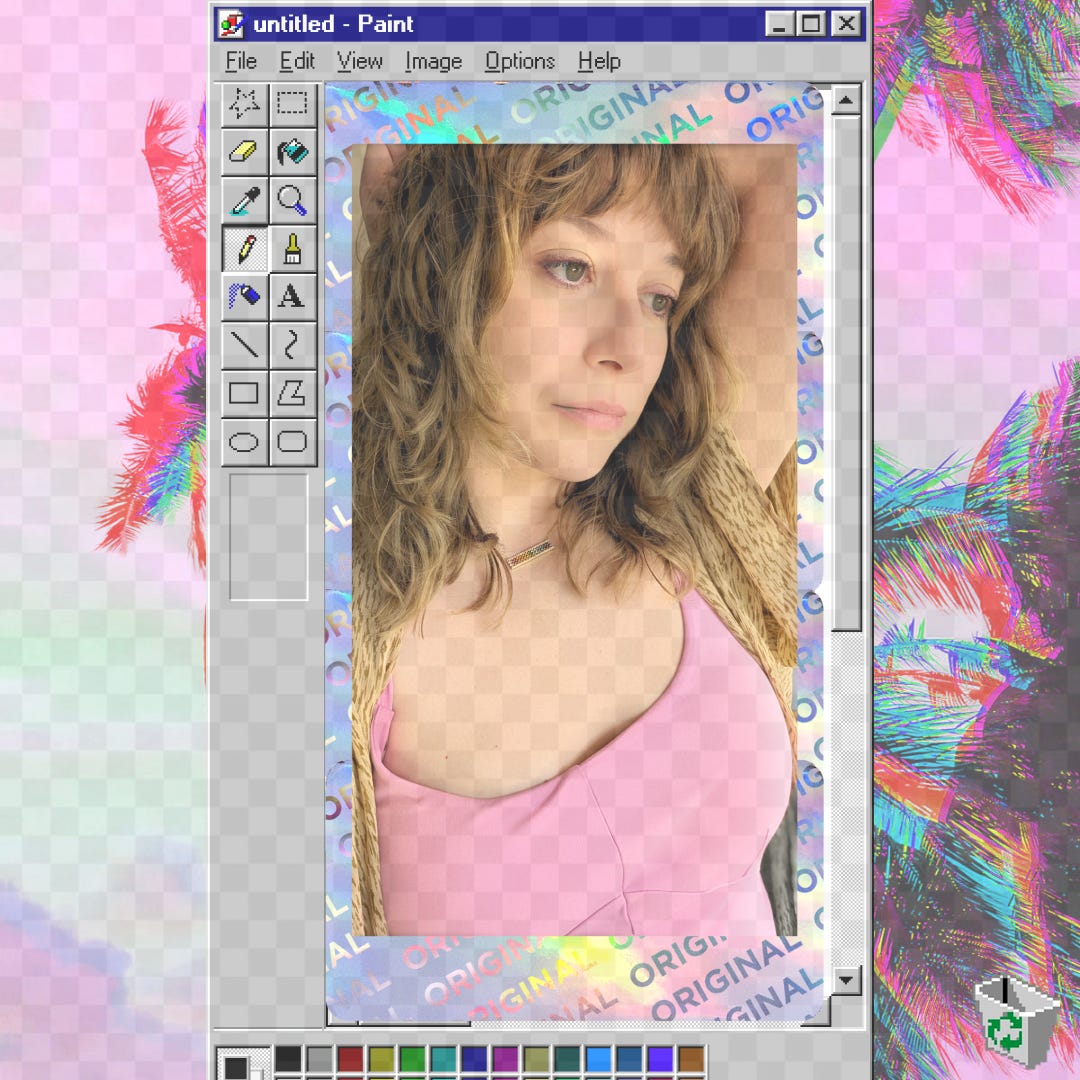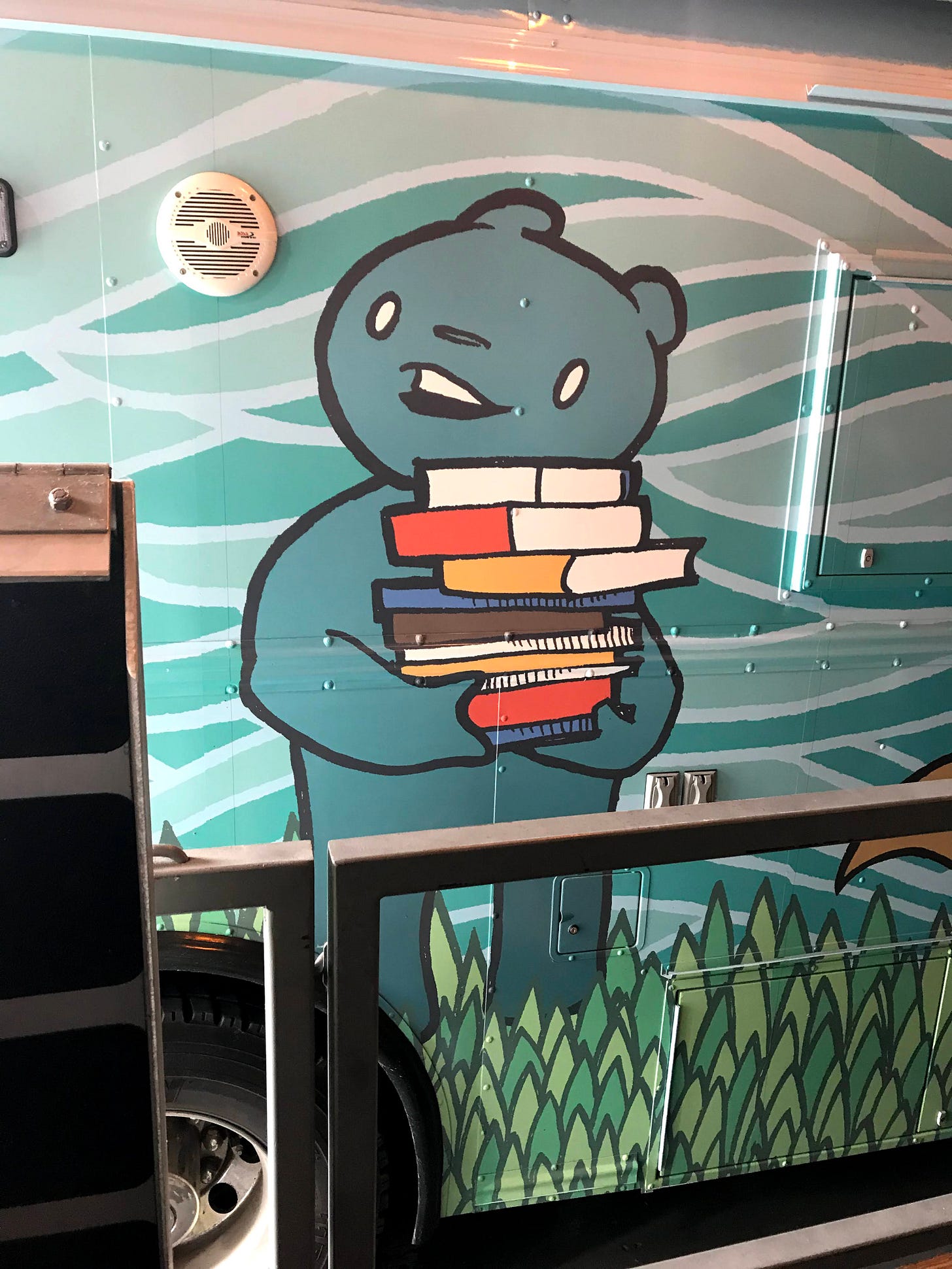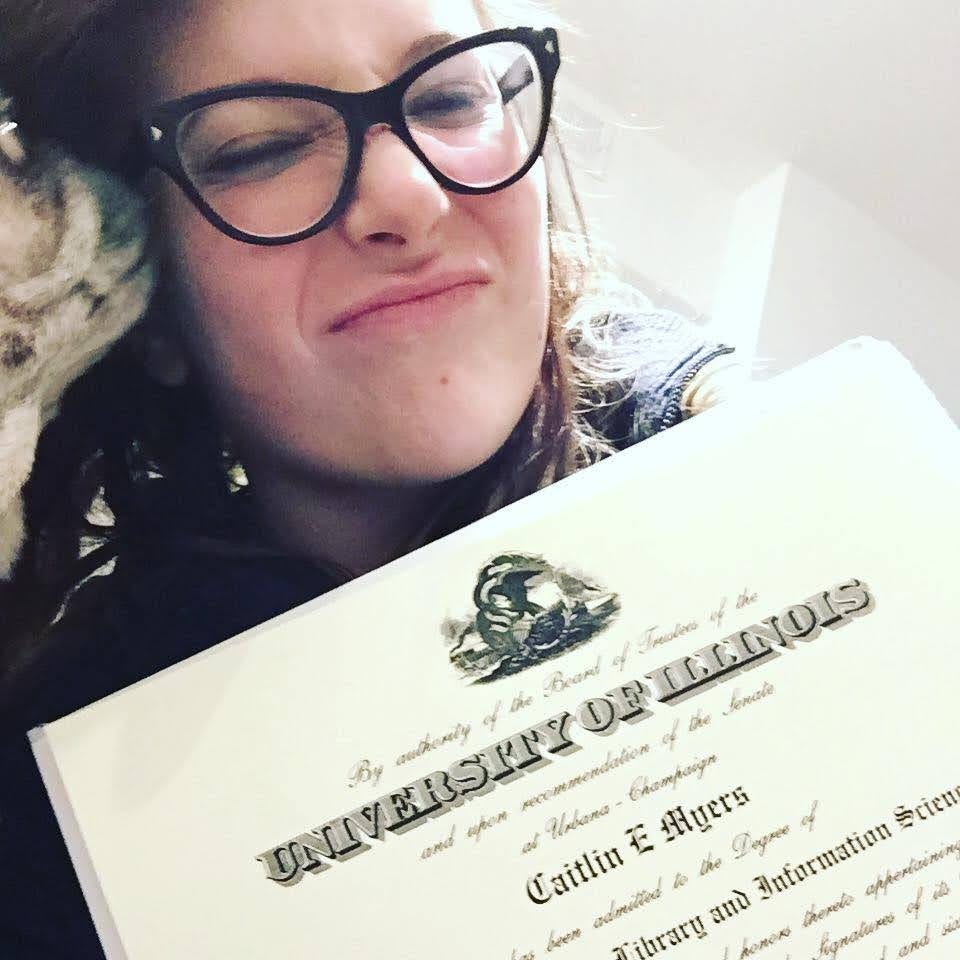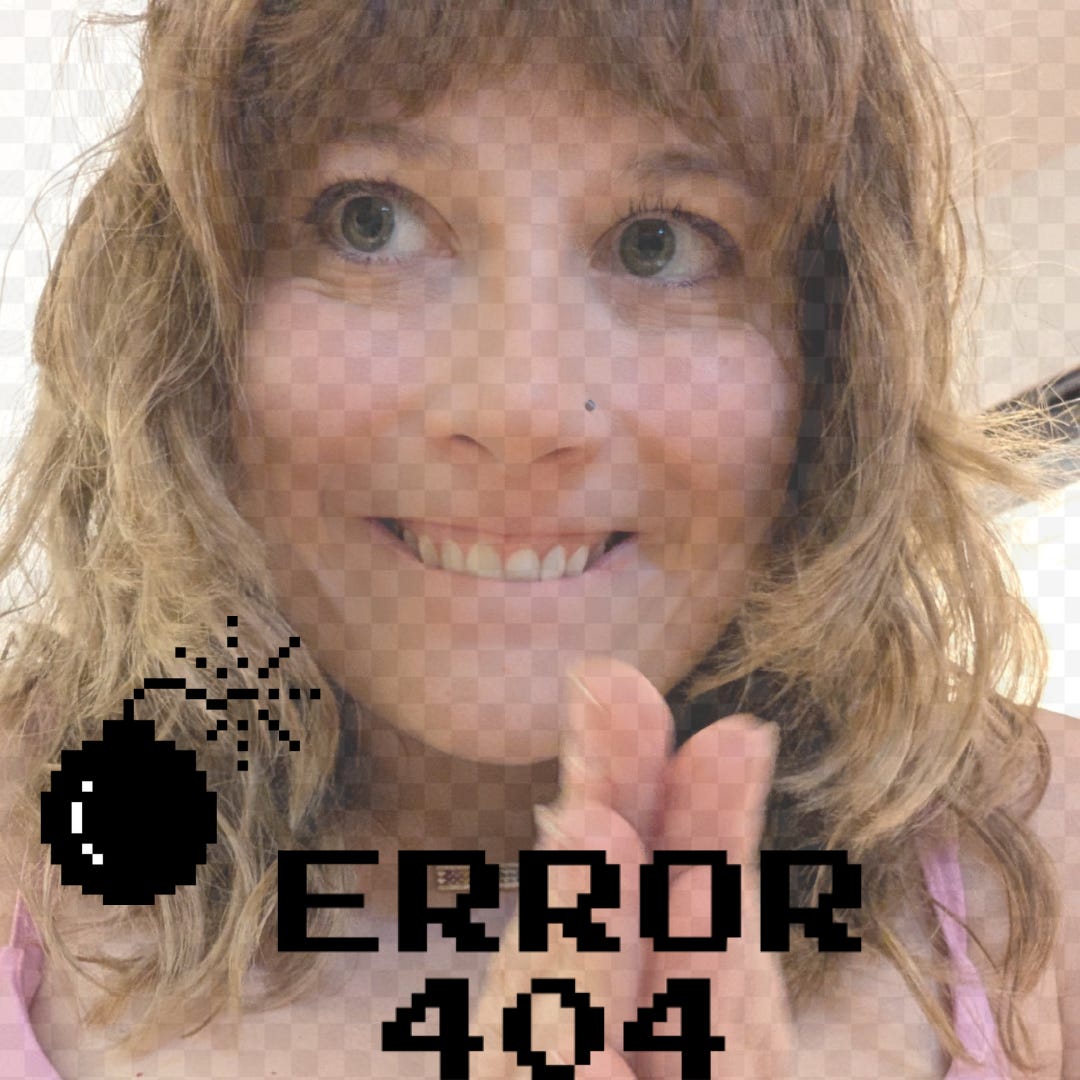Screw AI: Use It For Shit Work & Make Your Fucking Art.
An Ex-Librarian on Embracing Tech & Protecting Your Creative Time
I’ve always been of the opinion that reading is good, no matter what kind of reading you are doing. During my library days, I would guide kids with their reluctant mothers over to the graphic novel section. Kids get excited about books brimming with beautiful illustrations - their brains can take a break from the daunting task of reading a full text book and dive into something that not only gets them interested in reading, but also gives them an outlet for guided imaginative thinking. I’m not sure where the stigma came from about comics “not being real books” or “not counting as reading,” but I am grateful that characteristic remains outdated. I am also grateful that those kids who read their first graphic novel came back to the library week after week, and that their mothers were happy to fill a basket up for their child who used to not have any interest in reading.
Before the big AI boom, my friends started confessing to me sheepishly that they were listening to audiobooks. They would tell me about their long commutes to work or needing to get housework done while the baby was down for a nap. “I really wish I could sit down to read a book, but I don’t have the time. This is the only way I can fit it in. I know it doesn’t count…” they would say. Or “I don’t have the attention span to sit down and read, so I listen to a book. I feel guilty.” Most of my community was shocked to find out that I listen to 98% of the books I read each year. Your brain interprets the book the exact same way as if you sat down to read it cover to cover. Think about it: before the written word, we would gather around to listen to stories. Before you could read or interpret the world, you probably were read to. Listening to stories, in my personal opinion, is the most natural form of reading. There is nothing to feel guilty about.
Today, I miss the simple community worries of graphic novels and audiobooks. My community has expanded to consist of writers very rightfully worried about the state of AI. I know, I know. I am yet another writer contributing to the opinionated AI sludge pile on Substack. Hear me out, though. I use AI every day. I use AI to proofread business emails, I use AI to help me with eLearning for clients, I use AI to brainstorm complimentary hex combos, to help with categorizing my books on Amazon, to basically do all the shit I fucking hate doing and that takes up so much of my mental capacity so I can focus on what I love doing: writing and creating art.
Having a career and Master’s degree focused on informatics has primed me for AI prompting and training. I’m really fucking good at it. However, it feels like the days when I was in library school, and patrons would ask me, “why are you going to library school when Google knows the answer to everything?” Kind of like, “why would anyone write an essay or create art when AI can do it for you so quickly?”
My answer is: having the ability to critically discern different types of information is a skillset not everyone has. And, unfortunately, we are in a state where we are having difficulty emotionally regulating information.
It’s the age old library school question come to life… if a teen were to come into the library requesting information on how to build a bomb, would you guide them to the correct resources?
Stick with me.
I’m certain this question is still circulating in library schools today. But it’s such a stupid fucking question. Here is how I break down and discern this information to critically think and resolve:
If a teen a) comes into the library, b) initiates conversation, and c) asks an inflammatory question to a person of authority, do I really think that teen is there to learn about bomb making? Or is that teen testing me to see if I have ever heard of The Anarchist Cookbook?
My children in Christ, I would show them the Internet Archive and call it a fucking day.
However, library students typically get caught up in the morality of the question and how it makes them feel as an information professional helping people seek information that may go against their beliefs. That is the real root of asking this question, meaning, can you regulate your nervous system and curb your reaction to see what is happening? What is the information you are receiving?
Now, the questions are different, although still controversial. If students are turning in essays written by the free version of ChatGPT, what would you do? If a Substacker uses AI to write 520 versions of “hOw tO gEt mOrE sUbScRiBeRs iN 3 mInUtEs” or uses an AI image for their post (omg please shoot me) how will you react?
The two opinions I see the most are:
panic and write about how AI art and writing is horrible and how it is stealing art from artists and computerizing it and people are making it their own and profiting from it. Tell the Substacker to stop using AI art. We are ruining the planet. It uses so much water (but we won’t get into how almond milk and crypto farms also destroy the planet because we aren’t going to focus on that now). The Author’s Guild is firmly against all AI. We are human artists.
use AI to write posts and create art and profit off it. AI is good. AI helps me write 10 books per day that I can put on Amazon. The Alliance of Independent Authors says that AI is here to stay. I will become a production machine and make so much money. I am money bags.
As an information professional, this is how I am critically thinking about AI:
a) We are adapting to a new way of working. If we really want skin in the game of this debate, having a fresh perspective of, “information is information” and not a morality debate of good vs. bad or all vs. nothing will help us solve some real issues with AI integration. b) I acknowledge that there is an insane amount of pressure in our consumption culture to produce more art at break-neck speeds, hence why AI art and writing is picking up. c) Having facts become emotional trigger points of political debate is what has gotten us into this mess in the first place.
Plus, my former inner crust punk thinks that any chance you can get AI to do your soulless paid muggle work so you can read a book or make your art is the most anarchist shit you can do.
We are living in a fascist state and have bigger fish to fry.
I’m not saying to not care about AI, all I’m saying is to please recognize that:
Your time and attention are precious finite resources and they are being stolen from you.
Think critically.
You can only care about so much.
We need to remember that WE NEED YOUR ART NOW MORE THAN EVER does not mean:
write more books already!// we are waiting// it’s taking forever// why didn’t you release a series// you could have made so much more money that way// are you building your audience// do you have a mailing list of at least 1000 subscribers// what does your brand say about you// you don’t have an agent yet?// you don’t have a publisher?// you need an agent to publish// otherwise it’s so much work and no one will ever read your books// indie authors are cute// have you thought about writing romantasy// it’s really hot right now and you can make a lot of money//do you know todd is using AI to supplement his writing income// and posting books on Amazon// and Booktok is promoting them// and books are getting increasingly anti-intellectual// will our kids be reading AI books soon// your career as a writer is obsolete// you are insignificant// you have nothing to say// why didn’t you post today?// where have you been?// why aren’t you writing? // you should write every single day// never take breaks// AI will write the books you aren’t writing because you aren’t fast enough or good enough//
We are at a point in AI adoption that we can make our voice heard on how we want to use it.
Yes, the idea of AI books sucks. And I’ll say it: it’s not real reading or real writing.
What is scarier is not focusing on the real issues: disconnecting from our devices, making art, making art slowly and intentionally, slowing down in general, inviting our friends over for dinners, and building our critical thinking skills.
The internet is telling you what to believe. But what do you believe, really?
I know you are willing to die for your art.
But are you willing to live for it?
xoxo









So beautifully said.